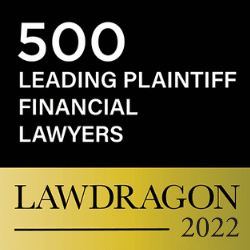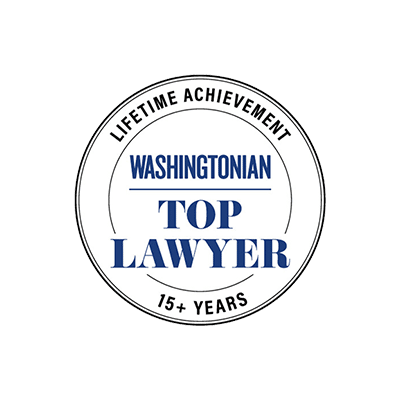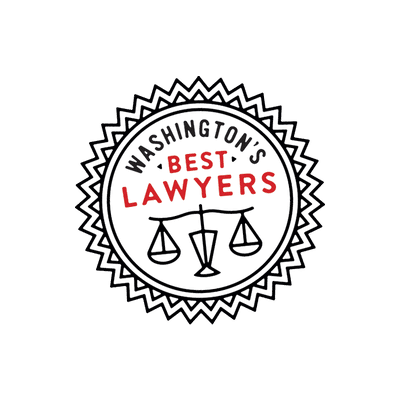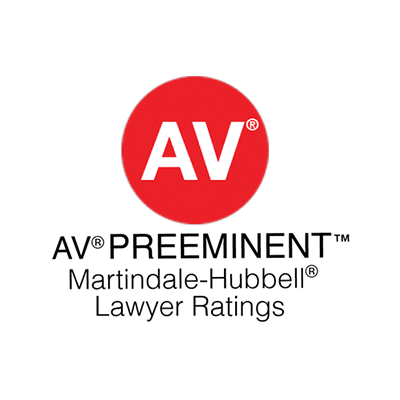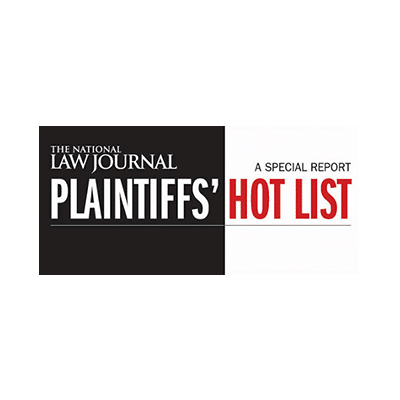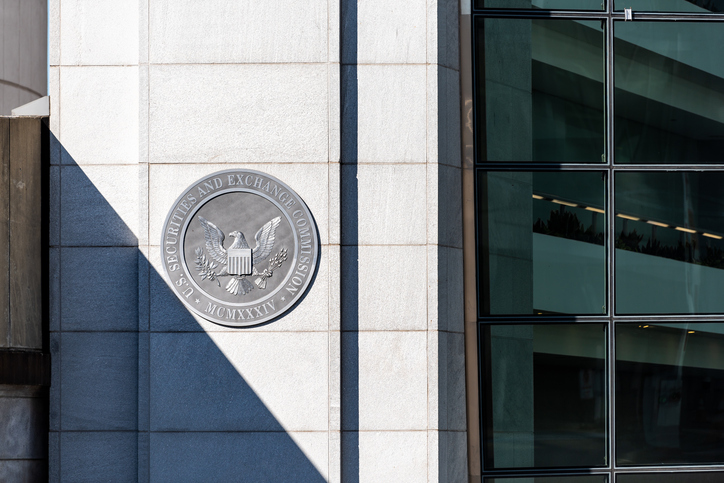Our firm has helped clients obtain over $125 million in preliminary or final rewards resulting from securities fraud and led to over $1.5 billion being recovered by the government on behalf of defrauded investors or fines under securities and related criminal laws.
We’re a nationally recognized whistleblower law firm representing whistleblowers who have information regarding investment fraud and other fraudulent schemes find justice. Our firm has obtained multi-million-dollar awards under the Securities and Exchange Commission (SEC) Whistleblower Program.
Our team is comprised of former SEC leaders, including Allison Herren Lee, former acting chair and Commissioner, and Andrew Feller, former Senior Counsel in the SEC’s Division of Enforcement who eventually served on Commissioner Lee’s staff as principal enforcement counsel and senior policy advisor.
If you’re seeking an investment fraud lawyer to help you report securities violations, stockbroker misconduct, or other illegal market manipulation schemes that have resulted in substantial losses for investors, reach out to Kohn, Kohn and Colapinto for free consultation and legal guidance.
We suggest submitting an intake form to discuss your options. There’s no fee unless we win your case.
Unmatched Expertise in Investment Fraud Involving Securities
Our firm’s Securities Whistleblower Group offers leading legal expertise to whistleblowers who report investment fraud. This group is led by the former acting chair and commissioner of the SEC, and Andrew Feller, a former SEC senior investigator who spent over 15 years in the SEC’s Division of Enforcement.
These attorneys are supported by founding partners Michael D. Kohn, Stephen M. Kohn, and David K. Colapinto behind some of the largest SEC whistleblower award cases in history, including two awards in the top ten SEC cases.
In 2024, founding partner Stephen M. Kohn was nominated by Forbes as one of America’s Top 200 Lawyers. Kohn and the firm’s partners helped draft key whistleblower legislation and regulation, including those incorporated into the Sarbanes-Oxley and Dodd-Frank acts, both of which protect investment fraud whistleblowers in several ways.
There is no firm better suited to help you with your investment fraud case than KKC. Fill out our intake form below to get in touch with one of our leading attorneys.
Our Firm’s SEC Cases

$125 Million in Awards
We have successfully represented a number of SEC whistleblowers, preserving their anonymity and securing sizable whistleblower rewards. In one case, we helped our client receive one of the ten largest whistleblower awards ever granted by the SEC.
The Investment Fraud Cases We Tackle
Investment fraud can occur in several different ways. But for the most part, a fraudulent scheme almost always begins with an unsolicited offer guaranteeing high returns with very little risk. These offers are generally highly complex and lack substantial support in the form of financial documentation.
The most common types of investment fraud schemes include Ponzi schemes – also known as High-Yield Investment Program (HYIP) schemes, which are unregistered investments typically run by unlicensed individuals.
The Major Red Flags Include:
- High-Pressure Sales: a fraudster will push you to make a hasty decision about an investment.
- Promise of No Risk: a fraudster might claim that the investment carries little or no risk.
- Growth Potential: a fraudster may claim that the investment will lead to substantial returns.
- Complex Financials: supporting documentation may be vague or overly complex.
- Difficult to Research: the investment will be hard to learn about and may not even be registered.
- Difficulty Withdrawing: you’re unable to withdraw your investment or “earnings.”
- Lack of Correspondence: you’re unable to reach the individual who offered you the investment.
- Unregistered Offerings: the individual who offered you the investment is unlicensed or unregistered.
Other types of deceitful practices involving financial advisors or institutions may include:
Broker-Dealer Misconduct
- Unauthorized Trading – making trades without the client’s consent.
- Churning – excessive trading to earn more commission.
- Failure to Supervise – not overseeing broker actions effectively.
- Selling Away – selling securities that aren’t offered by the broker’s firm.
Investment Adviser Misconduct
- Breach of Fiduciary Duty – not acting in the client’s best interest.
- Conflicts of Interest – benefiting at the expense of the client.
- Excessive Fees – charging clients unfairly high fees.
If you have experienced any of these red flags, we suggest you maintain strong documentation and seek legal assistance immediately from one of our leading securities fraud attorneys. We can help you understand your rights and help you recover losses stemming from an investment fraud scheme.
Understanding the SEC and CFTC Whistleblower Programs
Both the U.S. Securities and Exchange Commission (SEC) Whistleblower Program and Commodity Futures Trading Commission (CFTC) Whistleblower Program were established by Congress through the Dodd-Frank Wall Street Reform and Consumer Protection Act of 2010. Its primary aim is to incentivize individuals to come forward with specific, timely, and credible information about possible violations of federal securities laws.
How it Works
Individuals, regardless of their citizenship and whether they are company insiders or outsiders, can submit a “Tip, Complaint, or Referral” (TCR) to the SEC and/or the CFTC. This can be done electronically through the SEC’s and CFTC’s online whistleblower portals or by mail/fax.
To be eligible for an award, the information provided must be original (not already known to the SEC or CFTC, or derived exclusively from public sources) and must lead to a successful SEC or CFTC enforcement action resulting in monetary sanctions exceeding $1 million. Company insiders, investment fraud victims and outside analysts all can qualify to be a whistleblower under the SEC’s and CFTC’s rules.
Key Features of the Program
Monetary Awards
Eligible whistleblowers can receive between 10% and 30% of the monetary sanctions collected by the SEC or CFTC and certain other regulatory and law enforcement authorities in related actions. The amount of the award is determined based on several factors, including the significance of the information provided, the assistance rendered by the whistleblower, and the SEC’s and CFTC’s interest in deterring the specific type of violation.
Whistleblower Protections
The SEC and CFTC programs offers robust protections for whistleblowers. Individuals can submit information anonymously if represented by an attorney. Furthermore, the Dodd-Frank Act prohibits employers from retaliating against employees who provide information to the SEC or CFTC, or assist in an SEC or CFTC investigation or enforcement action. Retaliation can include actions like firing, demoting, suspending, harassing, or discriminating against the whistleblower.
Types of Qualifying Violations
A wide range of securities law violations can qualify for the SEC whistleblower program, including but not limited to:
- Ponzi schemes and other investment fraud
- Insider trading
- Market manipulation
- Accounting fraud
- False or misleading statements by companies
- Bribery of foreign officials (Foreign Corrupt Practices Act violations)
- Unregistered securities offerings
- Fraud by investment advisers or broker-dealers
The SEC Whistleblower Program is designed to enhance the SEC’s ability to detect and prosecute securities law violations, ultimately protecting investors and maintaining the integrity of the U.S. capital markets.
Since its inception, the SEC’s Whistleblower Program has recovered over $6.3 billion in sanctions and awarded over $2.2 billion to 444 individual whistleblowers. In FY 2024 alone, the SEC awarded over $255 million to 47 whistleblowers and collected a record $8.2 billion in sanctions.
CFTC Whistleblower Program
The CFTC Whistleblower Program operates similarly to incentivize whistleblowers to report violations of the commodities laws and to prevent similar types of fraud on investors.
The CFTC investigates fraud in digital asset commodities; manipulative and deceptive conduct and disruptive trading and false reporting; registrant reporting and compliance violations, including swaps data fraud; and protecting consumers and investors in the derivatives markets from fraud and abuse.
According to the CFTC, since making its first award in 2014, it has granted nearly $390 million in award payments to whistleblowers and enforcement actions associated with all whistleblower program awards have resulted in monetary relief of over $3.2 billion.
Process for Reporting Investment Fraud
To be eligible for a whistleblower award from the SEC or the CFTC, the information provided must lead to a successful enforcement action where monetary sanctions exceed $1 million.
The whistleblower must also have provided original, timely, and credible information. Additionally, the information must be provided voluntarily, not because of a legal obligation, and be in the form and manner required by the SEC, including a declaration under penalty of perjury.
Once these requirements are met, the whistleblower process is as follows:
- Report: report your tip using the SEC’s or the CFTC’s online TCR portal (with or without an attorney).
- Review & Investigate: the SEC or CFTC will review your tip and decide to investigate or decline.
- Act & Notify: the SEC or CFTC will post a notice of covered enforcement action and you may be eligible for an award.
- Apply: you have 90 days to apply for an award using Form WP-APP explaining your reasons.
- Decide & Award: the SEC or CFTC will review your award application and make a final decision.
- Appeal: if your award application is denied, you may appeal in U.S. Court of Appeals.
There are many complex rules and requirements to qualify as a whistleblower and to become eligible to receive an award. Thus, it’s important to contact an attorney before deciding to come forward with information.
Get Experienced Legal Guidance
If you’re looking for an investment fraud and securities fraud lawyer to represent you in a whistleblower award claim before the SEC or CFTC, we’re the firm you can call for experienced legal counsel. Fill out the intake form below for a free and confidential case evaluation. We don’t get a fee unless we win your case and receive a recovery.
Relevant FAQs
Latest News & Insights
Former SEC officials lead the firm’s new group, representing whistleblowers who report financial fraud and legal violations to the SEC, CFTC, DOJ, FinCEN, and the IRS.






